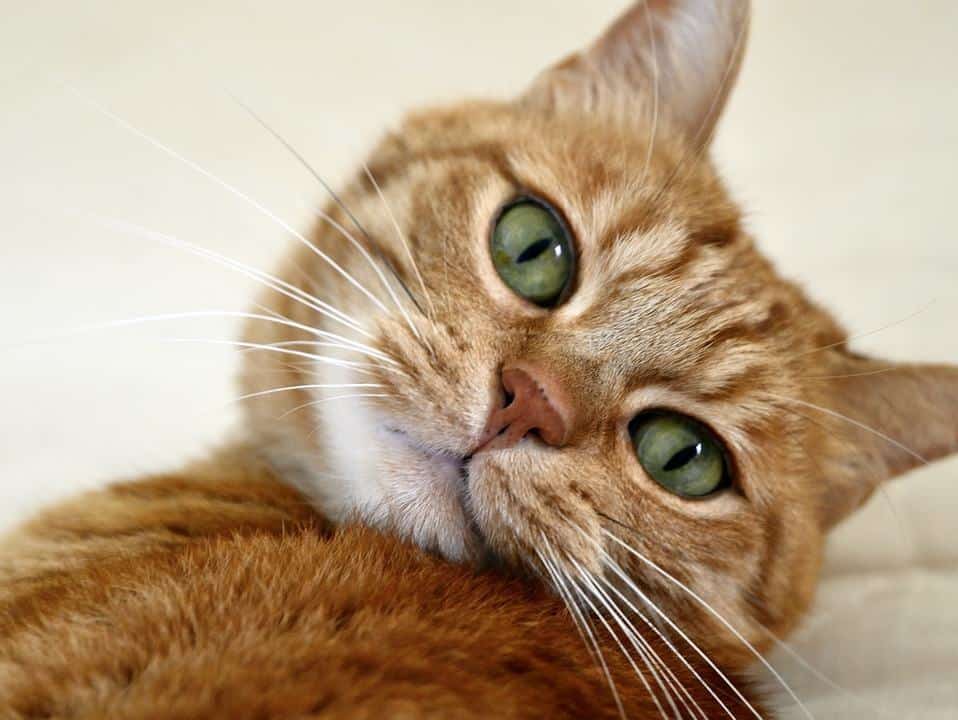Feline Urinary Tract Problems
Urine forms in the kidneys, is stored in the urinary bladder, then passes through a narrow tube called the urethra, and is eliminated. Feline Lower Urinary Tract Disease – (FLUTD) is a common group of conditions affecting the urinary bladder and/or urethra in neutered cats. Usually FLUTD affects cats about four years old, occasionally cats are ten and older. The causes vary with the age group.
CAUSES OF FLUTD IN FOUR-YEAR OLD CATS
* The vast majority, 50 percent of cases the cause is unknown
* Bladder stones or a blocked urethra are responsible in approximately 20 percent of cases.
* Urine infection or cancer only cause up to 5 percent of the problems in this age group.
CAUSES OF FLUTD IN CATS OVER TEN YEARS OLD
* Half have urine infections
* Many have bladder stones and/or urine infections
* A few have a blocked urethra.
* Almost 70 percent are also in chronic kidney failure.
SYMPTOMS
Cats with lower urinary tract disease show very similar signs despite a wide variety of potential causes
* Straining to urinate – male neutered cats (repeated unsuccessful trips to the litter box)
* Frequent passage of small amount of urine and/or no urine at all (male neutered cats.)
* Urinating outside the litter box, especially on cool smooth surfaces: in sinks, on countertops, and in bathtubs (female spayed cats)
* Blood in the urine (neutered male or female cats) with stones or plugs of sand in urethra.
* Cats lick their genital area excessively (neutered males).
WHAT YOU AND YOUR VET CAN DO
DIAGNOSIS
* Diagnosis is based on age, history, signs, blood and urine tests, along with X-rays in older cats.
TREATMENT
* Treatment is geared at dietary management to reduce recurrences of FLUTD and decrease the risk of neutered male cats developing a urethral obstruction, a true life and death emergency.
* Many prescription diets formulated for FLUTD are available. Analysis of urine is important, especially if “crystals” are present, because many of these “diets” are geared to acidify urine PH which in certain cases can make the problem worse.
* Changing from dry to “canned” form of the FLUTD diet works in 10% of cats.
* Antibiotics eliminate bacterial urinary infections if present.
* Many cats respond to the antidepressant (Elavil). It relieves bladder inflammation and pain and decreases anxiety in cats with unknown cause of FLUTD.
CLASSIC SIGNS
FEMALE SPAYED CATS
Female Spayed Cats often urinate in unusual places and occasionally have blood in their urine.
Neutered Male Cats make several unsuccessful trips to the litter box, strain to urinate and may cry out in pain. Most lick their genital area excessively to try
to relieve the sand plug in their urethra. Blocked cats not relieved in 24 to 48 hours risk death due to urethral obstruction.
COMPLEMENARY TREATMENTS
HERBAL REMEDIES
* Diuretic Herbs – use if bladder stones are a problem – parsley, corn silk, dandelion. Diuretics promote urination. Flushing the urinary tract can help eliminate small stones, toxins and bacteria.
DIETARY REMEDIES
* Cranberry is bacteriostatic, acidifies(LOWERS) urine PH and may prevent recurrent urinary infections. Use concentrated extract (would need too much juice to do much good).
* Vitamin B Complex – 5 milligrams daily
* Glycosaminoglycans “Gags” – Nutrients that help heal urinary bladders. This is a normal constituent of the bladder lining. These molecules may be lacking in the bladder lining of FLUTD cats as they are in some people with cystitis. This lets urine irritate the sensitive bladder tissue. The drug Elmiron is approved for this purpose.
COMPLEMENARY THERAPIES-Blocked Male Cats
NOTE: These homeopathic remedies are for blocked neutered male cats trying to urinate.
Pulsatilla 30 c – 1 pellet every 15 minutes for 3 treatments. Use for quiet cats that want to be held.
TIP
Many “special diets” are commercially available to prevent urine stones and crystals from recurring but analysis of urine is important, it tells you the type of crystal present so the diet can be chosen accordingly. Many of these “diets” are geared to acidify urine PH which in certain cases can make the problem worse. It’s important to have your vet analyze the type of bladder stone to see what it’s made of and then choose the proper type of diet to prevent the stones from recurring.









